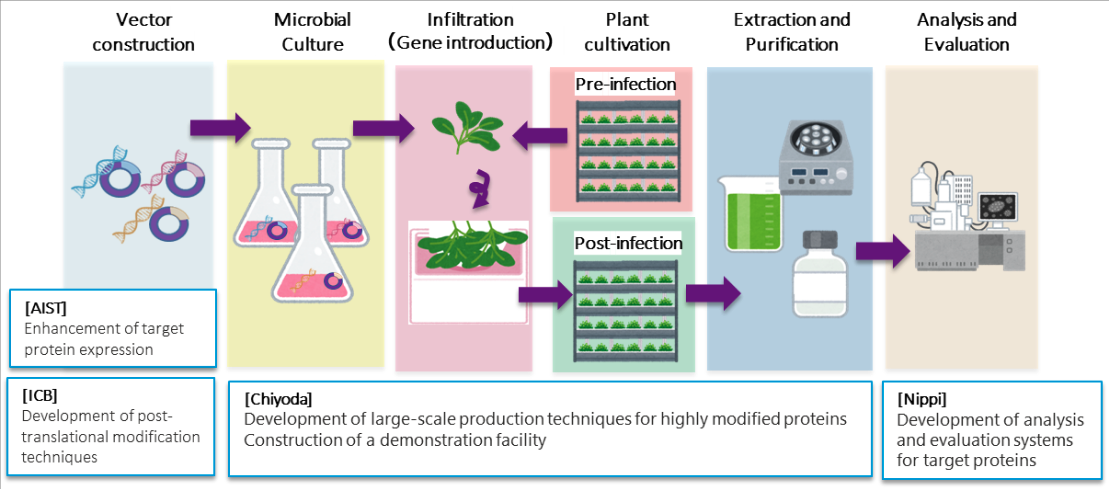Chiyoda Corp. (Tokyo) has developed a new foundational technology for producing useful chemicals — including human type II collagen — using plant-based feedstocks in a facility called the Plant Bio-Foundry, as part of the New Energy and Industrial Technology Development Organization (NEDO; Kawasaki) project ‘Development of Bio-derived Product Production Technology to Accelerate Carbon Recycling’. The Plant Bio-Foundry project demonstrates the production of human type II collagen, the first of its kind globally, as a model protein for the production of useful substances. Utilizing plant-based feedstocks allows for animal-free and cost-effective production of products, such as vaccines, pharmaceuticals, regenerative medicine products, cosmetics and functional foods, while reducing greenhouse gas emissions. This facility, Japan’s first Plant Bio-foundry, is dedicated to the practical development of plant bio-manufacturing and will support research and development from third-party institutions and companies.
The technology for producing materials using living organisms, such as plants and microorganisms (biomanufacturing), can be more energy-efficient and does not rely on fossil resources. Challenges remain, including lower production efficiency compared to petroleum-derived products and inferior physical properties of bio-products.
While foundational technology demonstration facilities have been established for the production of useful substances using microorganisms, producing complex molecules with high molecular weights, such as those requiring post-translational modifications, is challenging with microorganisms. Conversely, plants are expected to enable the production of such useful substances, necessitating the urgent establishment of foundational technology demonstration facilities for plants. Thus, NEDO has been implementing this project since 2020. As part of the initiative, Chiyoda has collaborated with Nippi Corp., the National Institute of Advanced Industrial Science and Technology (AIST) and the International Center for Biotechnology at Osaka University (ICB) since 2022 on ‘Development of Large-Scale Production Technology for Highly Modified Proteins Using Plants’, to demonstrate the world’s first large-scale production technology for human type II collagen using plants and building a foundational platform for bio-manufacturing with plants.

The framework for further development of the Plant Bio-foundry (Source: Chiyoda)
Human type II collagen, a major component of cartilage, was selected as the model protein and collaborative research among the four parties focused on controlling the expression of type II collagen, post-translational modification enzymes and techniques for extraction, purification and analysis of the produced human type II collagen. By implementing the scale-up technology and large-scale production technology developed in the project into the foundational demonstration facility established by Chiyoda, production capabilities have expanded from several grams to tens of kilograms of plant biomass.
Human type II collagen requires complex post-translational modifications that are challenging to achieve in E. coli, and the attempt to produce it using genetically modified plants (animal-free) is a world-first. This development confirms that human type II collagen protein, which possesses properties similar to those of animal-derived products, can be produced using plants. Furthermore, Chiyoda has commenced operations for the demonstration facility, aiming for operation as a foundational platform for bio-manufacturing using plants.